Flea bites are a common problem for pet owners, but why does your dog seem to be the one who gets bitten the most? Fleas can bite any warm-blooded animal, including humans, and they’re especially attracted to furry animals like dogs. If your pup is being tormented by fleas, it’s likely that you’ve noticed signs of their presence or felt them biting yourself. In this article, we’ll take a look at why your dog might be getting flea bites and what steps you can take to keep them away.
What Does Flea Biting Mean?
Flea biting means that the fleas have found a host to feed on. Fleas are bloodsuckers and need warm-blooded animals in order to survive. Dogs make an attractive target for them because of their thick fur, which helps keep the fleas hidden while they’re feasting. In addition, many dogs spend a lot of time outside, making them more likely to come into contact with fleas. [1]
Reasons Why Does My Dog Flea Bite Me?
- Uncomfortable Environment: Fleas prefer warm and humid environments, so if the area where your dog is staying is too dry or too cool for them, they may bite you out of discomfort in order to get to a better environment.
- Lack of Grooming: If your pet isn’t getting enough attention and grooming, it opens up the opportunity for fleas to get a foothold and start biting.
- Flea Allergy Dermatitis: If your dog is allergic to flea bites, they may be more likely to bite you as well – even if there are no actual fleas present.
- Unknowing Host: You may unknowingly be providing a breeding ground for fleas without even knowing it. If you are regularly near your pet and have not been taking steps to keep them clear of fleas, then you could be contributing to the problem.
- Low Immunity: Fleas can easily attach to pets with weak immune systems or those who are already dealing with other health issues. If your pet’s immunity is low, you could be providing a perfect place for fleas to feed and reproduce.
The best way to prevent your pet from being bitten by fleas is to make sure their environment is comfortable, that they receive regular grooming and parasite prevention treatments, and that their overall health is in good condition. [2]
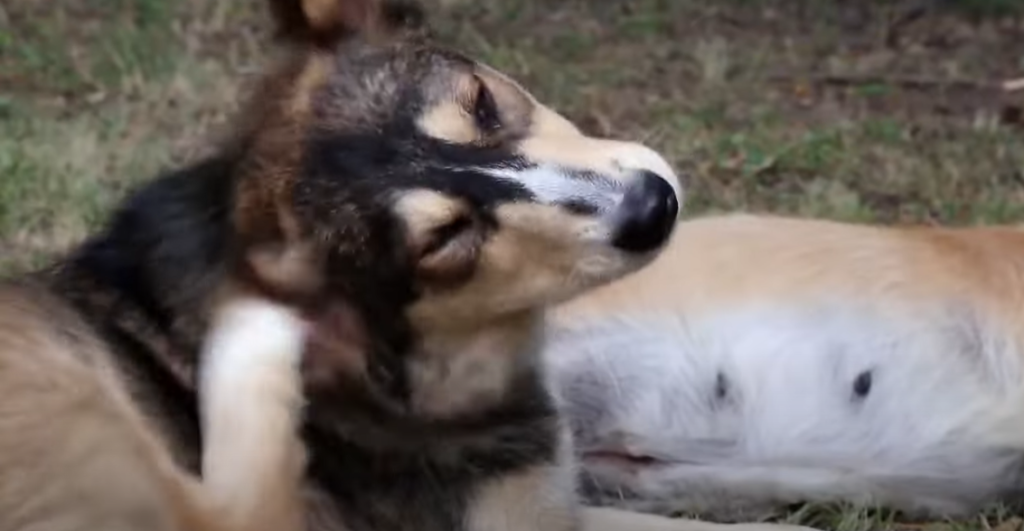
What Happens If A Dog Flea Bites You?
If a dog flea bites you, it’s important to understand the potential health risks associated with such a bite. Fleas can pass on certain diseases and parasites, such as tapeworms, through their bites. In addition, some people may suffer an allergic reaction to flea saliva that can cause redness, swelling, and itching at the bite site. In rare cases, an allergic reaction can even be life-threatening.
The best way to protect yourself from flea bites is to keep your pet on a regular flea preventative program, such as topical medication or oral medication. Additionally, it is also beneficial to regularly check your pet for signs of fleas, including scratching, hair loss, and flea dirt. If you do find fleas on your pet, it’s important to treat them as soon as possible in order to prevent additional infestations. [3]
Why Is Your Dog Flea Biting You?
Flea bites are an unpleasant and often painful experience for both you and your pet. But why is it that your dog’s fleas seem to be targeting you specifically?
The answer lies in the behavior of fleas. Fleas are attracted to humans by body heat, movement, carbon dioxide, and other scents. This combination can make humans a particularly attractive target for fleas, especially when there is an animal nearby. When your dog has fleas, it gives them easy access to you and your skin.
Fleas also have specialized mouths that are designed for piercing the skin and sucking blood, which makes us very vulnerable to their bites. Fleas tend to feed more frequently on people than animals and can quickly cause an itchy, irritating bite.
Fortunately, flea bites are not dangerous and can be treated with over-the-counter anti-itch creams or lotions. It is also important to keep your pet free of fleas by regularly treating them with flea preventative or regular flea baths. By addressing the underlying problem, you can keep your dog happy and free of fleas while protecting yourself from their bites.

How Does Flea Biting Affect Your Pet’s Health?
Flea bites can cause a lot of discomfort and irritation for your pet. Itchiness, redness, and swelling are common symptoms that can occur after being bitten. In some cases, fleas may also transmit diseases to your pet such as tapeworms or bartonellosis, which is an infection caused by bacteria. If your pet is showing signs of discomfort or illness, it’s important to take them to the vet for an examination and treatment.
Comb The Fur
Flea bites can cause significant health issues for your pet. Not only does the bite itself cause irritation, but it can also lead to a skin infection and anemia if left untreated. Fleas carry various diseases, which can be transmitted through their saliva when they feed on your pet’s blood. Regularly combing your dog’s fur is one of the best ways to combat fleas and their potential health effects.
Keep The Dog’s Paws Clean
To prevent your dog from bringing fleas into your home, it’s important to keep their paws clean. Regularly inspect and clean their paws after every walk or outdoor activity. By doing so, you can reduce the chance of fleas getting on your pet and in turn, reduce the chance of them being brought into your home.
Take The Dog Out For A Walk
One of the best ways to prevent your dog from flea biting you is by taking it out for a walk. Regular exercise gives your pet an opportunity to work off some built-up energy and can help reduce stress. Not only will this help reduce flea activity, but it’s also great for their overall health and wellbeing!
Keep Your Pet Engaged
Flea bites can be a sign of boredom or lack of activity in your pet. Make sure to keep your dog engaged and entertained with fun activities such as walks, playtime, and interactive toys. Give them plenty of love and attention to help reduce the stress that could lead to flea bite-related behavior. Also, make sure that your pet is on a regular flea prevention regimen. This will help reduce the incidence of fleas being brought into your home and also make sure they don’t spread to you or anyone else in your household.
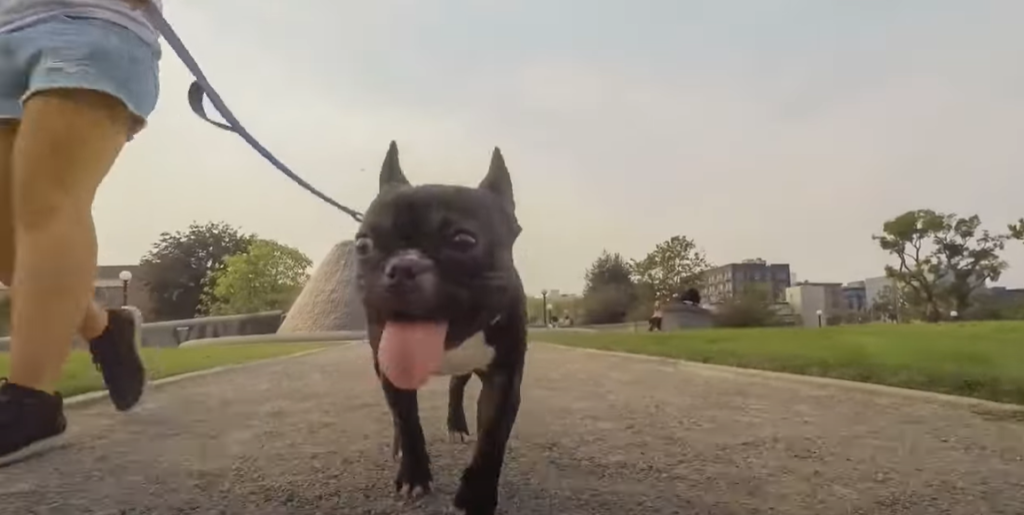
Examine Your Pet
When your dog flea bites you, the first step is to examine your pet for any signs of fleas. Check their fur and look for dark spots (flea dirt) or dried blood that may indicate the presence of these parasites. If you suspect a flea infestation, check the area around where they spend most of their time, such as their bedding or favorite spot on the couch. If you find fleas, it’s time to take action.
Get Chew Toys For Your Pooch
Getting your dog some chew toys can be a great way to help reduce the chances of flea bites. Chewing on these toys will help keep their teeth and gums healthy, which keeps them from being attracted to you or other people for biting. Additionally, chewing provides an outlet for their energies and helps prevent boredom, which can often lead to flea bites. Chew toys can help keep your pup occupied and away from areas where fleas could be lurking, decreasing the chances of them being bitten by fleas. Remember to get ones that are made out of safe materials and replace them often to keep your pup happy and healthy. [4]
FAQ
How can I stop dog fleas from biting me?
The best way to stop dog fleas from biting you is to use a combination of prevention and treatment methods. Prevention methods include regularly vacuuming your home, washing bedding and blankets, as well as keeping your pet on a monthly flea preventative medication. Treatment can involve using a flea comb to remove any existing fleas or applying a flea spray or powder to your pet’s coat. If the infestation is severe, you may also need to use a topical flea medication or have an exterminator come in.
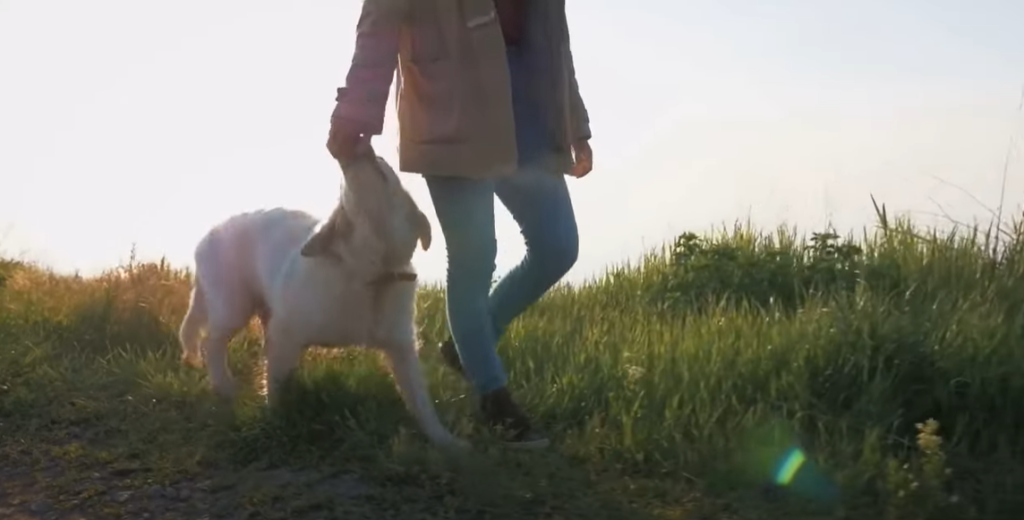
Why does my dog nibble me with his front teeth?
It is possible that your dog may be nibbling you with their front teeth as a way of showing affection. This behavior, known as “love-nibbling,” is a normal canine behavior, particularly in puppies and small dogs. It can be compared to the human impulse to give someone a hug or kiss when we are feeling close to them. However, it is important to note that for some dogs, this behavior can be a sign of anxiety or stress. If your dog’s nibbling begins to feel more like biting and is accompanied by other signs of distress such as barking or pawing at you, they may be trying to communicate their discomfort with the current situation. In this case, it is important to be mindful of your dog’s body language and take steps to help reduce the stress they may be feeling.
Do fleas prefer dogs or humans?
Fleas prefer to bite dogs and cats, but they can also bite humans. Fleas are attracted to warm-blooded animals and if the conditions are right, they will feast on human skin as well. The flea saliva causes an allergic reaction in both humans and dogs which leads to itching, redness, and soreness at the site of the bite.
Does showering get rid of fleas?
Showering your dog may help reduce flea activity, but it won’t get rid of fleas entirely. Fleas can hide in the fur and will continue to lay eggs even after a bath. To effectively eliminate fleas from your pet, you’ll need to use a combination of regular bathing, grooming and other chemical treatments designed specifically for fleas, such as shampoos, spot-on treatments, and sprays. Be sure to follow the instructions on any product you use — some products are toxic if used too often or in too high of a dose.
What instantly kills dog fleas?
One of the most effective ways to get rid of fleas from your dog is to use a product that contains an insecticide called “pyrethrin.” Pyrethrin-containing products are available in both topical and oral formulations, and they can instantly kill fleas on contact. These products should be applied directly to the affected areas of your dog, such as the neck and hindquarters, to ensure maximum effectiveness.
Do dogs show love by biting?
No, dogs do not show affection by biting or licking. In fact, these behaviors are often signs of anxiety and stress. Dogs that bite or lick too much may be trying to communicate that they are feeling overwhelmed or uncomfortable. It’s important to look for other signs of anxiety in your pet, such as pacing or trembling. If your dog is displaying any of these signs, it’s important to work with a qualified professional to help keep your pet feeling safe and secure.
Do dogs show affection by gently biting?
Dogs may show affection through gentle biting, but it should be done with care. Bite inhibitions are a natural form of communication among dogs and can also be used as an expression of care or playfulness. However, if the bite is too hard or painful, it is not a sign of affection. If your dog’s bites become too hard or painful, it is important to address the behavior and provide appropriate training to ensure that your dog understands what types of biting are acceptable.
What is cobbing?
Cobbing is a behavior exhibited by some dogs when they feel threatened or scared. It involves the dog jumping up and planting their front feet on either the person or another animal, while leaning in with their mouth open and teeth bared. This behavior typically occurs when the dog perceives something as a threat, such as someone approaching them too quickly or another animal encroaching on their territory. Cobbing is mostly seen in small breeds such as terriers, but it can occur with any breed of dog.
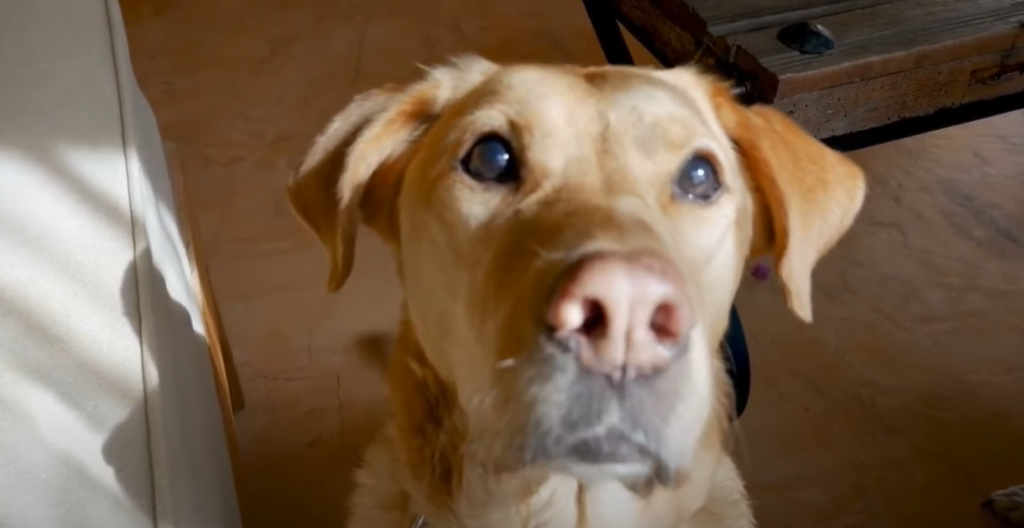
Why can’t you smash a flea?
Fleas are incredibly small and, as such, it can be difficult to crush them even with your fingers. To make matters worse, fleas have a thick exoskeleton that protects them from being crushed easily. This makes smashing a flea nearly impossible. Plus, if you do manage to crush one, there is also the risk of the flea’s blood and body parts being spread around, leading to even more fleas. For these reasons, it is typically not recommended that you try to smash a flea.
What dries fleas out?
Fleas are attracted to moisture, so anything that dries them out is likely to help in getting rid of them. Vacuuming can be very helpful in reducing the numbers of fleas, as it removes both adults and eggs. Keeping your home dry also helps – use dehumidifiers where needed, and make sure all areas of your home are well ventilated. In addition, washing pet bedding in hot water (at least 130°F) helps to kill fleas and their eggs. If you have access to it, steam cleaning your carpets and furniture can also help to reduce the flea population in your home. Finally, certain essential oils such as peppermint oil, lavender oil, and eucalyptus oil can help to repel fleas. Simply adding a few drops of the essential oils to your vacuum bag or your pet’s bedding can be an effective way to keep them away.
Useful Video: Why Does My Dog Flea Bite Me?
Conclusion
Although flea bites are common in both humans and animals, it is important to take preventive actions and manage the problem as soon as possible. Fleas can be a nuisance, but when dealt with quickly and properly, they won’t have time to cause major discomfort or harm. To prevent flea bites on your dog and yourself, there are a few steps that you can take. Regularly groom and bathe your dog, vacuum frequently to rid of flea eggs and larvae, keep your home clean and tidy, use anti-flea products such as oils or sprays on your pet’s fur to ward off fleas, and check yourself for signs of flea bites after having contact with your pet. With proper steps in place and a little bit of preventative maintenance, you can protect both yourself and your dog from flea bites.
References:
- https://www.dogneedsbest.com/why-does-my-dog-flea-bite-me/
- https://bulldogpapa.com/why-do-dogs-flea-bite-each-other/
- https://sirdoggie.com/dog-flea-bites-me/
- https://powerofthepaw.org/why-does-my-dog-flea-bite-me/

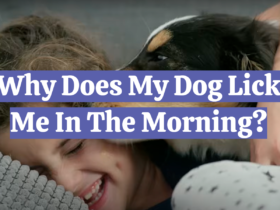



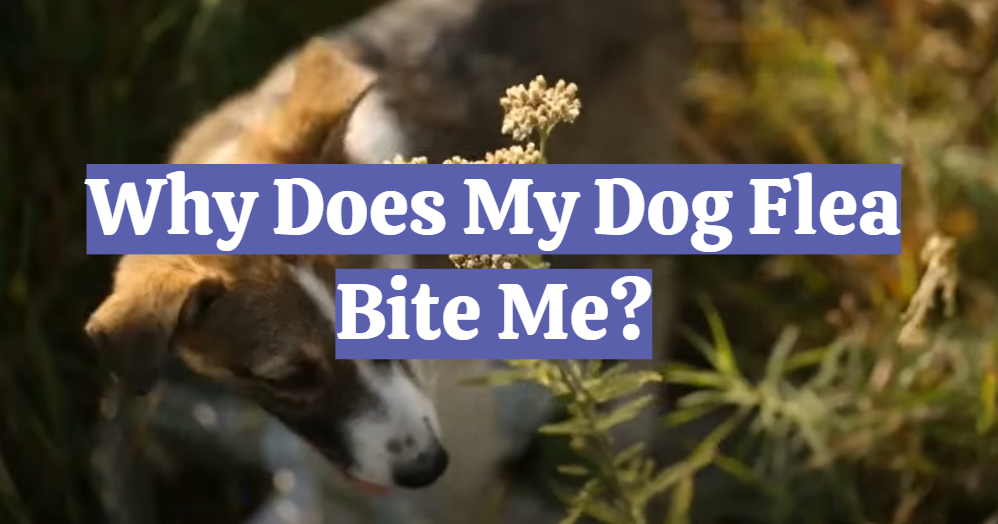




My furry friend, Max, has this quirky habit of licking his bed, and I’ve often wondered about the reasons behind it. After doing some research and consulting with our vet, it turns out that dogs might lick their beds as a way of self-soothing. Max does it particularly when he’s feeling anxious or after an exciting play session. It seems like his bed has become a comfort object, much like a security blanket for a child. It’s fascinating to see how our canine companions find solace in such simple behaviors.
Living with Bella, a lovely Golden Retriever, has taught me a lot about dog behavior. One curious habit she developed was licking her bed before settling down for a nap. It seems like dogs may also lick their beds to mark their territory. Our vet mentioned that dogs have sweat glands in their paws, and by licking their bed, they leave behind a scent that’s uniquely theirs. It’s like a canine way of saying, “This is my space,” which adds another layer to the intricate world of dog communication.
As a proud dog owner, I’ve often marveled at the different quirks and behaviors of my four-legged companion, Rocky. Recently, I noticed him licking his bed after I rearranged the furniture in our living room. According to some experts, dogs may lick their beds as a way of exploring and familiarizing themselves with new scents. It’s like Rocky’s unique way of getting to know his environment, and it’s truly heartwarming to witness how dogs adapt and respond to changes in their surroundings.
Watching my adorable Beagle, Daisy, lick her bed has become a daily routine, and I’ve come to learn that this behavior can be linked to various reasons. Sometimes, it’s simply a way for dogs to express boredom. Daisy tends to do it more when she hasn’t had her daily dose of play and exercise. It’s intriguing to see how licking the bed becomes a sort of pastime for her, providing a way to pass the time when she’s not engaged in more active pursuits.
Having a dog like Oliver, a mixed breed rescue, has brought immense joy to my life. Oliver occasionally licks his bed, especially when he’s not feeling well. It turns out that dogs may resort to licking as a form of self-soothing when they’re under the weather. When we noticed this behavior, we took Oliver to the vet, and it helped us identify an underlying health issue. It’s a reminder that sometimes, seemingly innocuous behaviors can be valuable indicators of a dog’s well-being, prompting us to be more attentive to their needs.
In the world of canine curiosity, my German Shepherd, Luna, has certainly kept me on my toes. One peculiar behavior I’ve observed is her habit of licking her bed after a particularly delicious meal. It turns out that dogs may engage in this behavior as a way of cleaning themselves or their surroundings. Luna seems to view her bed as an extension of her personal space, and after a satisfying feast, she takes it upon herself to tidy up. It’s amusing to witness the canine sense of cleanliness in action.
The mystery of why dogs lick their beds deepened when I noticed my Dachshund, Milo, doing it after a visit to the dog park. After a bit of digging, I found out that dogs might lick their beds to remove residual scents from outdoor adventures. Milo, with his keen sense of smell, seems to want to maintain the purity of his bed space, erasing any traces of other dogs or intriguing smells he picked up during our outing. It’s a fascinating insight into how dogs manage their olfactory world.
As a dog enthusiast, I’ve found joy in deciphering the unique language of my Border Collie, Charlie. Recently, I noticed him licking his bed more frequently during thunderstorms. It appears that dogs may lick as a way to cope with anxiety, especially during stressful situations like storms. Charlie finds comfort in his routine of licking, and it serves as a visible indicator of his emotional state. Understanding this behavior has allowed me to provide the extra reassurance he needs during those stormy nights.
Living with Cody, my energetic Australian Shepherd, has taught me that dogs often communicate through actions more than words. Cody has a penchant for licking his bed before curling up for a nap, especially when he’s been particularly active. It seems like dogs may engage in this behavior as a way to cool down and relax after physical exertion. Cody’s ritualistic licking is his way of transitioning from playtime to rest, offering a glimpse into the thoughtful and deliberate nature of canine behavior.